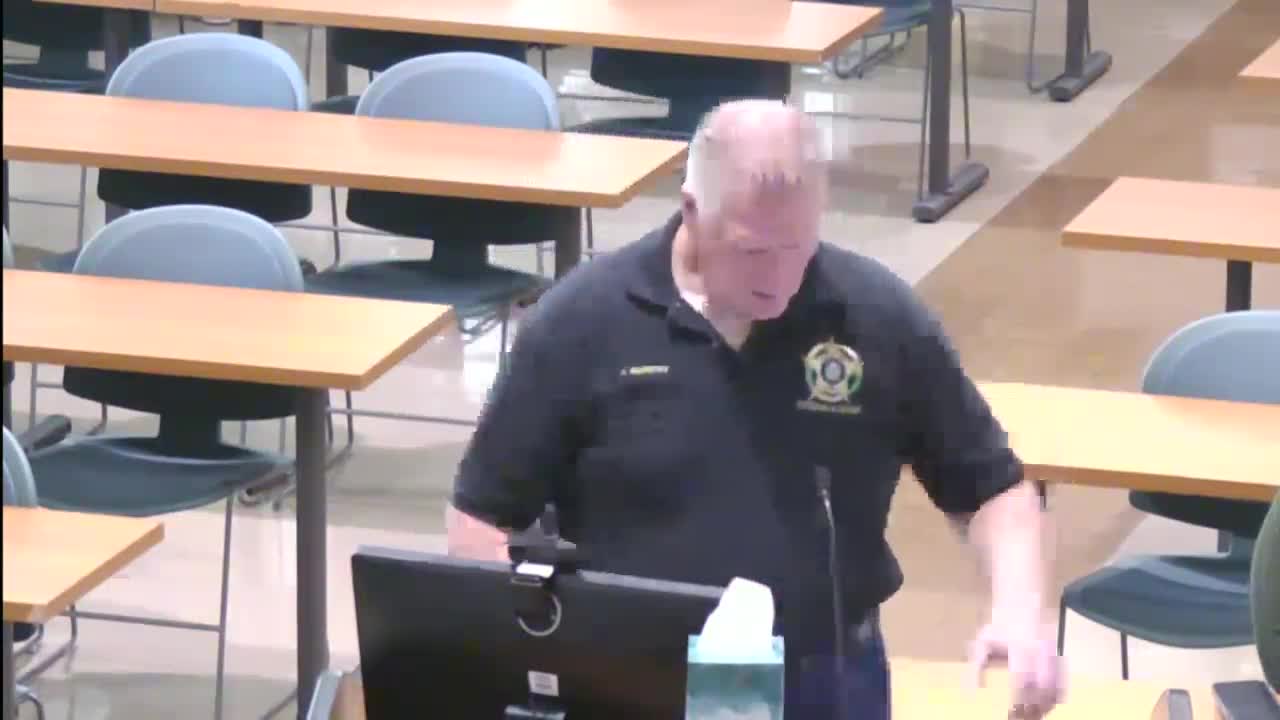Texas Attorney General sues Pfizer over vaccine misinformation
July 29, 2024 | EDINBURG CISD, School Districts, Texas
This article was created by AI summarizing key points discussed. AI makes mistakes, so for full details and context, please refer to the video of the full meeting. Please report any errors so we can fix them. Report an error »

In a recent government meeting, Texas Attorney General Ken Paxton announced a lawsuit against Pfizer, alleging the pharmaceutical company misrepresented the efficacy of its COVID-19 vaccine and engaged in efforts to censor public discourse. Filed in 2023, the lawsuit claims Pfizer violated the Texas Deceptive Trade Practices Act by making unsupported claims about the vaccine's effectiveness, particularly the widely cited 95% efficacy rate, which the attorney general argues is misleading.
Paxton contended that Pfizer's claims were based on relative risk reduction from initial clinical trials and that the company failed to disclose critical information regarding the vaccine's limited duration of protection. He asserted that despite evidence showing an increase in COVID-19 cases post-vaccination, Pfizer continued to promote the vaccine as a necessary measure for public health while allegedly intimidating critics and censoring dissenting voices.
The attorney general emphasized the need for accountability, stating, \"We are pursuing justice for the people of Texas, many of whom were coerced by tyrannical vaccine mandates to take a defective product sold by lies.\" He indicated that the lawsuit, which spans 54 pages, is available on the attorney general's website.
Additionally, the meeting featured alarming claims from Dr. William Mackus, a cancer researcher, who reported a rise in aggressive cancers among vaccinated individuals, particularly in young people. He described cases of rapid-onset cancers, including leukemia, in adolescents, suggesting a troubling correlation with COVID-19 vaccinations. Dr. Mackus criticized the medical community for not addressing these issues and highlighted the experiences of patients whose stable cancer conditions deteriorated after receiving booster shots.
The discussions raised significant concerns about vaccine safety and transparency, reflecting ongoing debates surrounding COVID-19 vaccinations and public health policies.
Paxton contended that Pfizer's claims were based on relative risk reduction from initial clinical trials and that the company failed to disclose critical information regarding the vaccine's limited duration of protection. He asserted that despite evidence showing an increase in COVID-19 cases post-vaccination, Pfizer continued to promote the vaccine as a necessary measure for public health while allegedly intimidating critics and censoring dissenting voices.
The attorney general emphasized the need for accountability, stating, \"We are pursuing justice for the people of Texas, many of whom were coerced by tyrannical vaccine mandates to take a defective product sold by lies.\" He indicated that the lawsuit, which spans 54 pages, is available on the attorney general's website.
Additionally, the meeting featured alarming claims from Dr. William Mackus, a cancer researcher, who reported a rise in aggressive cancers among vaccinated individuals, particularly in young people. He described cases of rapid-onset cancers, including leukemia, in adolescents, suggesting a troubling correlation with COVID-19 vaccinations. Dr. Mackus criticized the medical community for not addressing these issues and highlighted the experiences of patients whose stable cancer conditions deteriorated after receiving booster shots.
The discussions raised significant concerns about vaccine safety and transparency, reflecting ongoing debates surrounding COVID-19 vaccinations and public health policies.
Don't Miss a Word: See the Full Meeting!
Go beyond summaries. Unlock every video, transcript, and key insight with a Founder Membership.
✓
Get instant access to full meeting videos
✓
Search and clip any phrase from complete transcripts
✓
Receive AI-powered summaries & custom alerts
✓
Enjoy lifetime, unrestricted access to government data
30-day money-back guarantee

